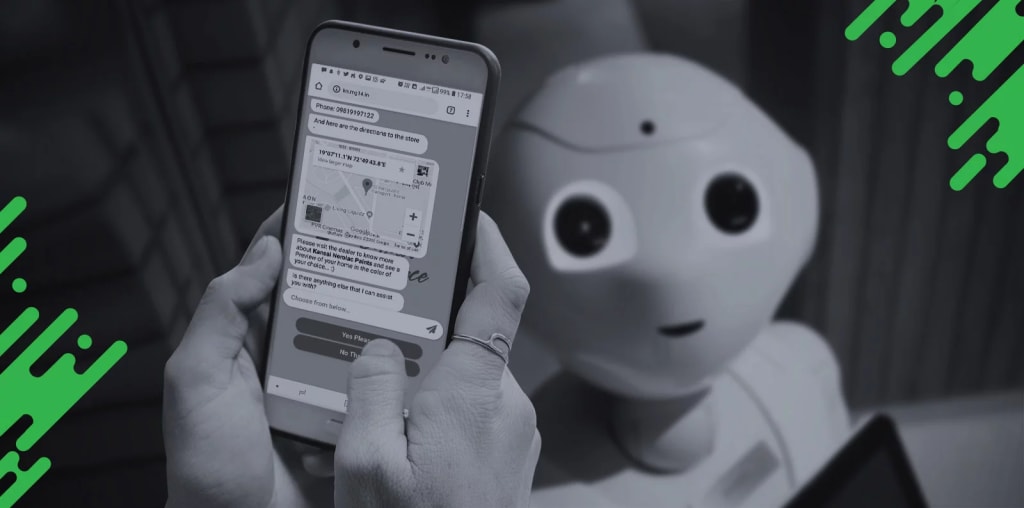Everything You Need to Know About Chatbots for Business – Karix
Chatbots for Business

In recent years, chatbots have emerged as powerful tools for businesses, revolutionizing the way they interact with customers and streamline operations. From customer support to marketing, chatbots have found applications in various sectors, offering an efficient and automated way to engage with users. In this comprehensive guide, we’ll explore the world of chatbots, covering what they are, how they work, and the different types available for businesses.
What is a Chatbot?
A chatbot is a computer program designed to simulate conversation with human users, especially over the internet. These virtual assistants are programmed to understand and respond to user queries, providing information, assistance, or performing tasks. Chatbots can be integrated into various platforms, such as websites, messaging apps, and social media, making them versatile tools for businesses looking to enhance their customer interactions.
How Do Chatbots Work?
Understanding the working principles of chatbots is crucial to harness their potential for business applications. Here’s a simplified overview of how chatbots function:
1. Input Analysis:
Chatbots start by analyzing the user’s input, whether it’s a typed message, voice command, or even an image.
Natural Language Processing (NLP) is a key component that enables chatbots to understand and interpret human language.
2. Intent Recognition:
The chatbot identifies the user’s intent by analyzing the input. Intent recognition involves determining the purpose or goal behind the user’s message.
3. Context Understanding:
Chatbots consider the conversation context to provide relevant and coherent responses. Context awareness helps in maintaining a meaningful dialogue.
4. Data Retrieval:
Chatbots retrieve relevant information from databases or external sources to generate accurate responses to user queries.
5. Response Generation:
The chatbot formulates a response based on the user’s intent and available data. This response is then presented to the user in a natural and engaging manner.
6. User Interaction:
The chatbot interacts with the user, responding to queries, providing information, or guiding them through specific tasks.
7. Learning and Improvement:
Many advanced chatbots incorporate machine learning algorithms, allowing them to learn from interactions and improve over time. This enables them to adapt to user preferences and evolving language patterns.
Types of Chatbots
Chatbots come in various types, each serving different purposes and functionalities. Here are some common types of chatbots for businesses:
1. Rule-Based Chatbots:
These chatbots operate based on predefined rules. They follow a set of instructions to respond to user inputs and are suitable for straightforward and predictable interactions.
2. AI-Powered Chatbots:
Leveraging artificial intelligence and machine learning, these chatbots can understand natural language, learn from interactions, and adapt to user behavior over time. They offer a more dynamic and personalized user experience.
3. Scripted Chatbots:
Scripted chatbots follow a predetermined script and are designed for specific tasks or scenarios. They are less flexible than AI-powered counterparts but can be effective in certain use cases.
4. Application-Based Chatbots:
Integrated within specific applications, these chatbots help and information related to the app’s functionalities. They enhance user experience by offering in-app support.
5. social media Chatbots:
Deployed on social media platforms, these chatbots engage with users through messaging apps. They are often used for customer support, marketing, and lead generation.
6. Voice-Activated Chatbots:
Utilizing voice recognition technology, these chatbots enable users to interact using spoken commands. They are commonly found in virtual assistants like Siri or Alexa.
8 reasons why you should use chatbots for business.
Enhancing Response Time for Customer Service Queries:
Customer service response time is a critical factor in customer satisfaction. Traditional methods often involve manual handling of queries, leading to delays and inefficiencies. By implementing automated systems such as chatbots and intelligent ticketing systems, businesses can significantly reduce response times. Chatbots, powered by artificial intelligence, can instantly provide relevant information, troubleshoot common issues, and even escalate more complex problems to human agents.
Automating Sales Processes:
Automation plays a pivotal role in accelerating the sales cycle. Intelligent sales automation tools can handle routine tasks such as lead qualification, data entry, and follow-up communications. This not only speeds up the sales process but also allows sales teams to focus on building relationships and closing deals. Automated sales funnels can be designed to nurture leads and guide potential customers through the purchasing journey, resulting in increased conversion rates.
Efficient FAQ Automation:
Frequently Asked Questions (FAQs) are a fundamental aspect of customer service. Automating FAQ responses through chatbots or knowledge base systems ensures that customers can quickly find the information they need without human intervention. By leveraging Natural Language Processing (NLP), these systems can understand and respond to customer queries in a manner that closely mimics human interaction, providing a seamless and efficient experience.
Automated Customer Service Tasks:
Routine and repetitive customer service tasks, such as order tracking, account inquiries, and status updates, can be efficiently handled through automation. By integrating backend systems and databases, automated processes can retrieve real-time information and respond to customer queries promptly. This not only improves efficiency but also reduces the workload on customer service agents, allowing them to focus on more complex and personalized interactions.
24/7 Support:
Customer expectations have evolved to demand round-the-clock support. Automation enables businesses to provide 24/7 customer service without the need for human agents to be always available. Chatbots and automated systems can handle basic inquiries during non-business hours, ensuring that customers receive timely assistance regardless of the time zone or location.
Time and Labor Savings:
Automating repetitive tasks not only improves efficiency but also results in significant time and labor savings. By reallocating human resources to more strategic and high-value tasks, businesses can optimize their workforce, leading to increased productivity and cost-effectiveness. Automation reduces the likelihood of errors associated with manual processes, further enhancing the overall operational efficiency.
Multi-Language Support:
In a globalized marketplace, catering to diverse linguistic preferences is crucial. Automation can facilitate multi-language support through language detection and translation capabilities. This ensures that customers from different regions feel understood and valued, ultimately contributing to a more inclusive and customer-centric approach.
Examples of chatbots
Customer Service Chatbots
One of the most common applications of chatbots is in customer service. Many companies use chatbots to handle routine inquiries, provide product information, and assist customers with common issues. For example, the airline industry often employs chatbots to help users check flight statuses, book tickets, and address frequently asked questions.
E-commerce Assistants
In the world of online shopping, chatbots play a crucial role in enhancing the customer experience. E-commerce chatbots can help users find products, track orders, and answer questions about pricing and availability. These bots are designed to replicate the personalized assistance one might receive in a physical store.
Healthcare Chatbots
The healthcare industry has embraced chatbots to provide instant medical information, appointment scheduling, and general health advice. These bots are designed to offer support and information, especially during non-emergency situations.
Educational Chatbots
Chatbots have found their way into education, assisting students with coursework, answering questions, and providing additional learning resources. Educational chatbots aim to make learning more interactive and accessible.
Finance and Banking
Chatbots have become essential in the financial sector, offering users a convenient way to check account balances, transfer funds, and receive financial advice. These bots enhance the efficiency of banking services and provide a user-friendly interface for various financial transactions.
Entertainment Chatbots
Entertainment chatbots focus on engaging users in entertaining conversations, providing information about movies, music, and other forms of entertainment.
For more info: https://www.karix.com/products/chatbot-solutions/





Comments
There are no comments for this story
Be the first to respond and start the conversation.